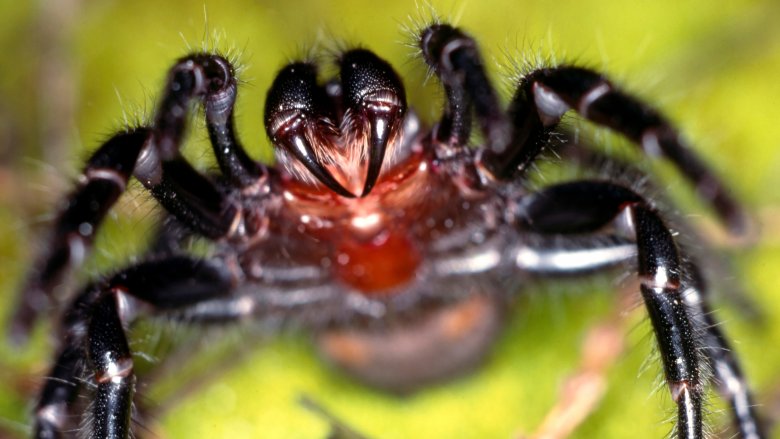Do Spiders Sleep?
Spiders aren't the kind of critters you can easily sneak up on, and for the 75 percent of our species who find spiders repugnant or terrifying, it's often this constant watchful alertness they find most disconcerting. Well, that and the myth they'll crawl into your mouth when you're asleep. So that leads us to the slightly weird question: do spiders sleep?
Dr. Barrett Klein, Associate Professor of Biology with the University of Wisconsin, explains that sleep is relatively common across the insect and arachnid kingdoms. As described in New Scientist, his research shows that, just like humans, many bugs will tire and eventually become unable to function if deprived of sleep. But spiders don't experience sleep in the way humans do. According to Dr. Phil Sirvid, resident arachnologist with the Museum of New Zealand, spiders are capable of lowering their energy levels and reducing their metabolism — effectively "powering down." However, those eight beady little eyes aren't equipped with eyelids, and a spider's dormant "sleeping" state is on a delicate hair trigger. Unlike caffeine-dependent humans, the moment a threat or potential for food presents itself, a spider will instantly snap back into a state of full, wriggly vigor.
Spiders are supremely successful hunters, consuming between 400 million and 800 million tons of insects every year. And sleep plays an important role in their evolutionary success. According to Reference.com, some spider species will tuck themselves into a ball and hibernate. In colder climates, they'll hover on the edge of death, only rousing from slumber when milder weather returns (presumably with a severe case of the hangries). Hunting spiders are nocturnal; they'll typically catch their zees during the day and get their hunt on under cover of darkness. Web-building spiders (like everyone's favorite, the daddy long-legs) experience intense bursts of energy followed by long periods of waiting about for delicious flying morsels to handily offer themselves up as lunch. Sleep allows these arachnids to conserve energy and avoid starvation.
So, the answer to whether spiders sleep is a qualified "sort of." It's sleep, but not as humans experience it. And what that sleep looks like varies significantly across species. But if you were hoping to catch a spider napping with its many eyes closed, well, you're out of luck there.
